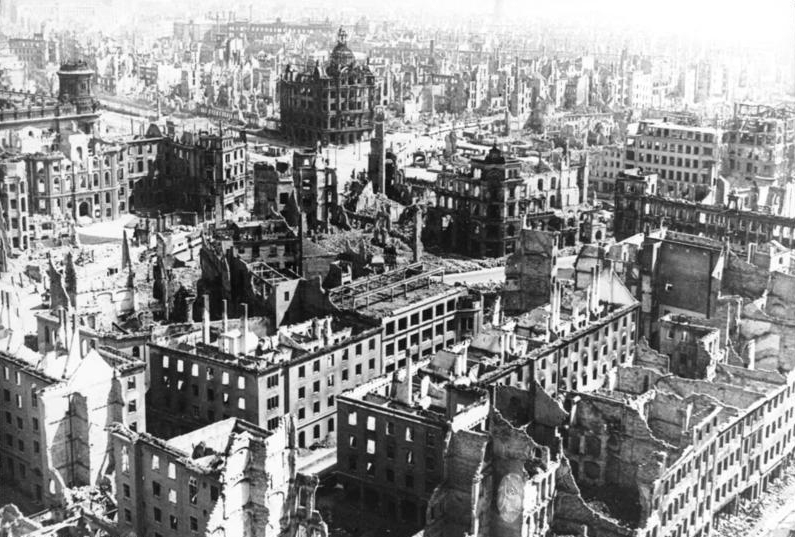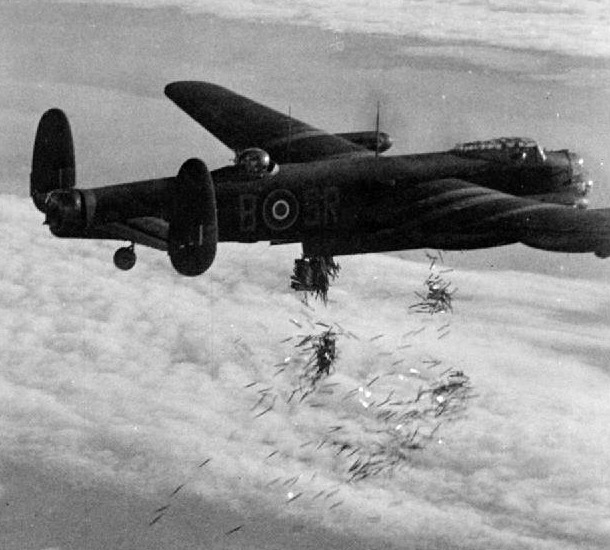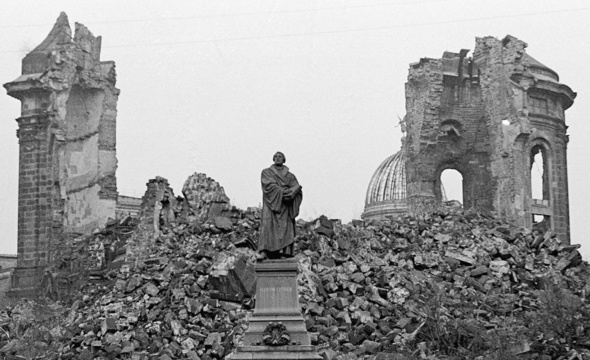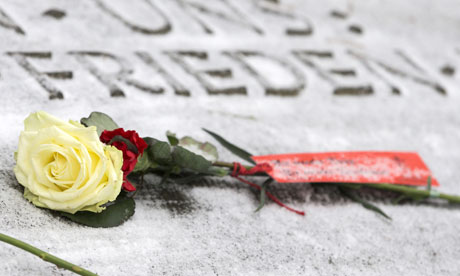
On the evening of February 13, 1945, a series of Allied firebombing raids begins against the German city of Dresden, reducing the "Florence of the Elbe" to rubble and flames, and killing as many as 135,000 people.



It was the single most destructive bombing of the war—including Hiroshima and Nagasaki—and all the more horrendous because little, if anything, was accomplished strategically, since the Germans were already on the verge of surrender.




Among the conclusions reached at the February 1945 Yalta Conference of the Allied powers was the resolution that the Allies would engage in concerted strategic bombing raids against German cities known for war-production and manufacturing, in an effort to bring the Nazi war machine to a crashing halt. The tragic irony of the raid on Dresden, a medieval city renowned for its rich artistic and architectural treasures, is that during the war it had never been a site of war-production or major industry.




Both Allies and Germans alike have argued over the real purpose of the firebombing; the ostensible "official" rationale was that Dresden was a major communications center and bombing it would hamper the German ability to convey messages to its army, which was battling Soviet forces at the time. But the extent of the destruction was, for many, disproportionate to the stated strategic goal—many believe that the attack was simply an attempt to punish the Germans and weaken their morale.


More than 3,400 tons of explosives were dropped on the city by 800 American and British aircraft. The firestorm created by the two days of bombing set the city burning for many more days, littering the streets with charred corpses, including many children. Eight square miles of the city was ruined, and the total body count was between 35,000 and 135,000 (an approximation is all that was possible given that the city was filled with many refugees from farther east). The hospitals that were left standing could not handle the numbers of injured and burned, and mass burials became necessary.



Among the American POWs who were in Dresden during the raid was novelist Kurt Vonnegut, who conveyed his experience in his classic antiwar novel Slaughterhouse Five.



Taken from: http://www.history.com/this-day-in-history/firebombing-of-dresden [13.02.2014]

I am not saying its not Hitlers fault that all this happened. He started the WAR and he didn't want to stop it. I am just underlining the fact that WAR is harsh on everyone and unfortunately innocent people always gets killed on both sides.
ReplyDeleteHitler didn't start the war, Britain & France did. They thought they could defeat Germany, but they can't, it was the United States' intervention that won them the war. Without US military aid, they would have been defeated.
ReplyDeleteBoth Allies & the Axis committed war crimes, it's just sad that only the Germans were punished, not the Americans, British & specially the Soviet Union(who murdered more people than the Nazis) who were also war criminals.
Unknown, I think that it's short odds that you are an American yourself. I'm not an American. Nor am I Russian, or British - from one of the other Allied countries (yes, there were others).
ReplyDeleteWho won the Second Word War? The Russians. Without the Eastern Front, it's most unlikely that the Allies could have beaten Germany in Western Europe.
In July 1943, the Germans had over 4 million German and other nations' troops deployed on the Eastern Front. The Russians had nearly 7 million deployed at the same time.
Given the hard fight that the Allies had across Europe as it was, do you think the Allies could have won if the Germans had been able to put 4 million extra men into the Western Front?
The US made a big difference, especially in the Pacific, and anyone who glances at history has to acknowledge and be thankful for the US.
The biggest difference that the US made was production. The US armed the Allies - it was, as Roosevelt said, 'the arsenal of democracy'. Germany and Japan could not compete with US industrial power.
War crimes are always committed in conflicts, and, yes, whenever possible, those responsible should be punished.
The difference is, the Germans and Japanese war crimes were officially sanctioned, approved, and encouraged as part of their policy in conducting the war. They made war crimes part of their war industry, and even glorified them (e.g. WW2 Japanese newspaper reports of 'beheading competitions' between Japanese Army officers).